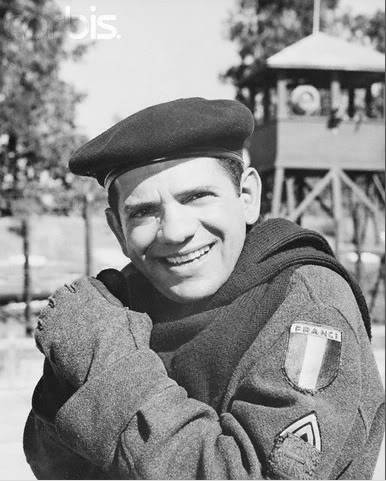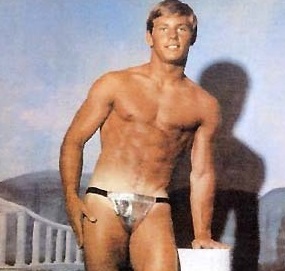In the fall of 1982, I moved to Indiana University to work on my M.A. in English. One night -- Saturday, September 25th, to be exact -- I bolstered my courage enough to walk the mile or so into downtown Bloomington and go into adult bookstore. The clerk, an obese man in a dirty t-shirt, was watching Love Boat on a small black-and-white tv set. I asked "Do you have anything gay?" and without looking up he jerked his thumb toward a rack near the bathroom. It contained straight softcore porn like Playboy and Penthouse, but also the gay news magazines The Advocate, Christopher Street, and In Touch -- plus, on a bottom shelf, the directory, The Gayellow Pages.
I bought them all, along with a Playboy for cover, and rushed back to my dorm room, and read them all that night. One of the articles listed 10 reasons why Prince Charles was...you know. (They didn't say "gay" for fear of a lawsuit): he was musical and artistic, enjoyed the theater, and often wore the color pink. He was a hunk, with a tight, muscular physique. And more importantly, he was never seen with women, but often seen with attractive men, some of whom worked as his "butlers" or "valets," where they had intimate access to his bedchamber.
But: Prince Charles' fairytale wedding to Lady Diana Spencer last year, in July 1981, was a major event, televised worldwide. Their romance was the subject of two tv movies, both coincidentally airing a few days ago: Charles and Diana: A Royal Love Story on September 17th, and The Royal Romance of Charles and Diana on September 20th. He had a son, Prince William, born July 1982. (Prince Harry, bottom photo) would be born in 1984). How could he be gay?
But he was well over 30 when he married, the article stated, and he picked Diana seemingly at random. His mother, Queen Elizabeth, no doubt pressured him into it. It was a screen.
At the time, I thought that gay people were physically, emotionally, and spiritually unable to engage in heterosexual relations, even as a screen, so I was astonished.
Thirty years later, Prince Charles is still the subject of gay rumors. They may or may not be true. But he was essential to my first realization that the gay world was more vast and complex than anything I had ever imagined.
See also: My First Visit to an Adult Bookstore
I bought them all, along with a Playboy for cover, and rushed back to my dorm room, and read them all that night. One of the articles listed 10 reasons why Prince Charles was...you know. (They didn't say "gay" for fear of a lawsuit): he was musical and artistic, enjoyed the theater, and often wore the color pink. He was a hunk, with a tight, muscular physique. And more importantly, he was never seen with women, but often seen with attractive men, some of whom worked as his "butlers" or "valets," where they had intimate access to his bedchamber.
But: Prince Charles' fairytale wedding to Lady Diana Spencer last year, in July 1981, was a major event, televised worldwide. Their romance was the subject of two tv movies, both coincidentally airing a few days ago: Charles and Diana: A Royal Love Story on September 17th, and The Royal Romance of Charles and Diana on September 20th. He had a son, Prince William, born July 1982. (Prince Harry, bottom photo) would be born in 1984). How could he be gay?
But he was well over 30 when he married, the article stated, and he picked Diana seemingly at random. His mother, Queen Elizabeth, no doubt pressured him into it. It was a screen.
At the time, I thought that gay people were physically, emotionally, and spiritually unable to engage in heterosexual relations, even as a screen, so I was astonished.
Thirty years later, Prince Charles is still the subject of gay rumors. They may or may not be true. But he was essential to my first realization that the gay world was more vast and complex than anything I had ever imagined.
See also: My First Visit to an Adult Bookstore









































































































